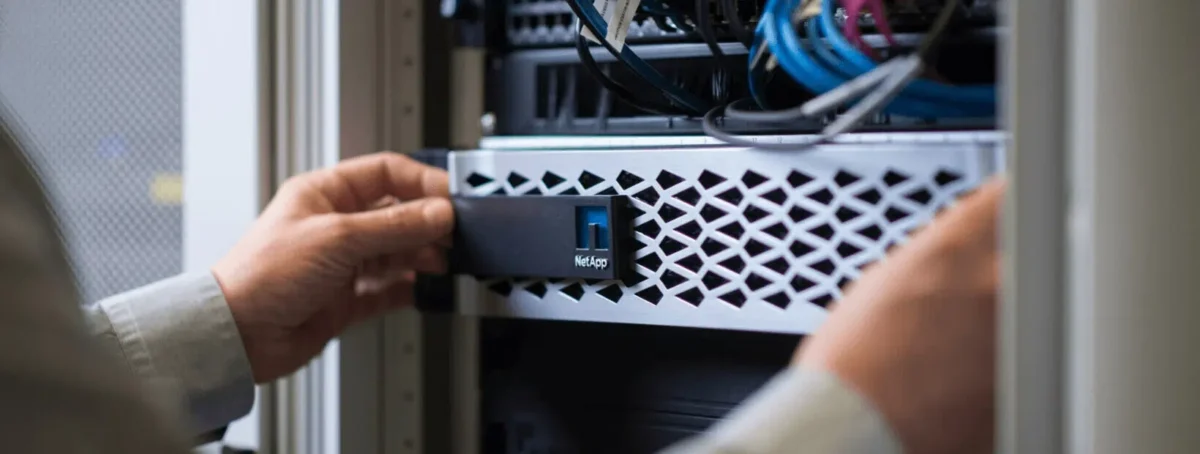In today’s manufacturing environment, an ERP is no longer just a repository for financial and logistical data. It has become the technological heart of a connected value chain, driving production, maintenance and the supply chain in real time. By combining modular cloud architectures, microservices and open APIs, companies build a scalable foundation that hosts predictive AI services, real-time analytics and industrial IoT. This digital transformation delivers agility, transparency and continuous optimization.
For industrial small and medium-sized enterprises (SMEs) and mid-tier companies, the challenge is to build a data-driven cloud ERP platform capable of integrating with the Manufacturing Execution System (MES), Product Lifecycle Management (PLM), Customer Relationship Management (CRM) and Business Intelligence (BI) ecosystems, while supporting the ongoing innovation of Industry 4.0.
Cloud Architecture and Microservices: The Foundation of ERP 4.0
Hybrid cloud architectures and microservices form the basis of a scalable, resilient ERP. They ensure elasticity, fault tolerance and independence from evolving technologies.
Public, Private and Hybrid Cloud
Manufacturers adopt hybrid models that combine public cloud for peak workloads and private cloud for sensitive data. This dual approach ensures regulatory compliance while offering unprecedented elasticity.
Operationally, hybrid cloud lets you distribute workloads: critical, legacy processes reside in a controlled environment, while innovation or AI developments run on public environments on demand.
Such a setup reduces the risk of vendor lock-in by enabling gradual service migration and abstracting infrastructure through open-source multi-cloud management tools.
Modularity and Microservices
Breaking down functionality into microservices isolates domains—inventory, production, finance, maintenance—into independent services. Each microservice can be updated, redeployed or scaled on its own.
Thanks to orchestrators and containers, these microservices deploy rapidly under centralized monitoring, ensuring performance and availability to Industry 4.0 standards.
Implementation Example
An electronics component SME migrated its ERP to a hybrid cloud to host operational data on-premises and AI services in a public environment. This architecture reduced downtime by 30% and enabled automatic scaling during new product launches, validating the benefits of a modular, cloud-native ERP platform.
Security and Compliance
In a hybrid model, security relies on next-generation firewalls, encryption of data at rest and in transit, and granular identity management via open-source solutions.
Zero-trust architectures reinforce protection of ERP-API interfaces, reducing attack surfaces while maintaining business-critical data access for IoT and analytics applications.
By adopting DevSecOps practices, teams embed security into microservice design and automate vulnerability testing before each deployment.
Data Orchestration and Industrial IoT
Integrating IoT sensors and real-time streams turns the ERP into a continuous automation platform. Instant collection and processing of operational data optimize production and maintenance.
IoT Connectivity and Edge Computing
Industrial sensors record temperature, vibration or flow continuously. With edge computing, this data is filtered and preprocessed locally, reducing latency and bandwidth usage.
IoT streams are then sent to the cloud ERP via secure gateways, ensuring consistency of production data and archiving of critical metrics.
This distributed infrastructure automatically triggers restocking workflows, machine calibrations or maintenance alerts based on predefined thresholds.
Real-Time Ingestion and Processing
Event platforms (Kafka, MQTT) capture IoT messages and publish them to processing pipelines. Real-time ETL microservices feed the ERP and analytical modules instantly.
This orchestration provides live KPIs on overall equipment effectiveness, quality variances and production cycles, all displayed on dashboards accessible from the ERP.
Correlating IoT data with work orders and maintenance history optimizes scheduling and reduces scrap.
Predictive Maintenance
From collected time series, predictive AI models assess equipment failure probabilities. Alerts are generated directly in the ERP, triggering work orders and real-time procurement of spare parts.
This approach significantly reduces unplanned downtime and improves line availability, while optimizing maintenance costs by focusing only on necessary interventions.
Feedback loops continually refine the algorithms, improving forecast accuracy and adapting tolerance thresholds to real-world operating conditions.
Industrial Case Example
A machine-tool production unit deployed vibration and current sensors on its spindles. IoT-edge processing detected misalignment before any machine stoppage, cutting maintenance costs by 25% and extending equipment lifespan by 15%. This case illustrates the power of an IoT-connected ERP to secure production.
{CTA_BANNER_BLOG_POST}
AI and Real-Time Analytics in the ERP
Embedded predictive and generative AI in the ERP enhances decision-making and automates high-value tasks. Real-time analytics deliver clear insights into operational and strategic performance.
Predictive AI for the Supply Chain
Machine learning algorithms forecast product demand from order history, market trends and external variables (seasonality, economic conditions).
These forecasts feed procurement planning functions, reducing stockouts and minimizing overstock.
The cloud ERP incorporates these predictions into purchasing workflows, automatically placing supplier orders based on adaptive rules and providing real-time KPI dashboards.
Generative AI for Design and Documentation
Natural Language Processing (NLP) models automatically generate technical datasheets, training materials and compliance reports from product and process data stored in the ERP.
This accelerates documentation updates after each configuration change, ensuring consistency and traceability of information.
An integrated virtual assistant within the ERP allows users to ask questions in natural language and instantly access procedures or key metrics.
Intelligent Reporting and Dynamic Dashboards
The ERP’s built-in analytics engines provide custom dashboards for each function—production, finance, supply chain. Visualizations update by the second via real-time streams.
Proactive alerts flag critical deviations, such as delivery delays or energy spikes, enabling teams to act before performance is impacted.
These dashboards use configurable, exportable widgets accessible on desktop or mobile, fostering cross-disciplinary collaboration.
Process Optimization Example
A medical device manufacturer integrated a predictive AI engine into its ERP to adjust assembly lines based on demand forecasts. Service levels rose by 12% and logistics costs fell by 8%, demonstrating the direct impact of real-time AI on operational performance.
Integration and Interoperability via APIs and Ecosystems
Open, secure APIs enable the cloud ERP to interface with MES, PLM, CRM and e-commerce platforms. Removing silos ensures a continuous information flow and a unified view of the product lifecycle.
API-First and Security
An API-first strategy exposes every ERP function as a RESTful web service or GraphQL endpoint. Business developers can consume or extend these services without modifying the core system.
Implementing API gateways and OAuth 2.0 policies secures data access while providing monitoring and traceability of exchanges between systems.
This approach avoids bottlenecks and vendor lock-in by relying on open, non-proprietary standards.
Interoperability with MES, PLM, CRM and E-Commerce
The PLM supplies product data (BOM, specifications) to the ERP and receives production feedback to enrich future releases. The MES synchronizes work orders and reports shop-floor metrics in real time.
The CRM feeds customer and order information into the ERP for automated invoicing and optimized contract management. E-commerce platforms connect to manage inventory, dynamic pricing and promotions.
This multi-system orchestration eliminates duplicate entries, reduces errors and ensures data consistency at every step of the value chain.
Transform Your ERP into an Industry 4.0 Innovation Engine
Combining a modular cloud ERP, microservices architecture, IoT streams and real-time AI creates a continuous automation and innovation platform. By connecting the ERP to the MES, PLM, CRM and BI ecosystems through secure APIs, manufacturers gain agility, performance and predictability.
Projects must remain contextual, avoid vendor lock-in and favor open source to ensure long-term scalability and security. A hybrid, data-driven approach delivers fast ROI and a foundation ready to absorb future technological and business evolutions.
Our experts are available to design, integrate or modernize your cloud ERP and orchestrate your Industry 4.0 architecture. Together, let’s turn your information systems into growth and competitiveness levers.

















